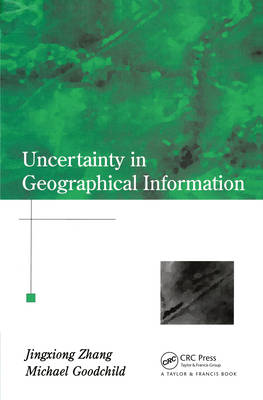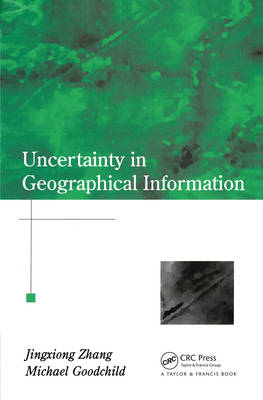
- Afhalen na 1 uur in een winkel met voorraad
- Gratis thuislevering in België vanaf € 30
- Ruim aanbod met 7 miljoen producten
- Afhalen na 1 uur in een winkel met voorraad
- Gratis thuislevering in België vanaf € 30
- Ruim aanbod met 7 miljoen producten
€ 89,45
+ 178 punten
Omschrijving
As Geographic Information Systems (GIS) have developed and their applications have been extended, the issue of uncertainty has become increasingly recognized. It is highlighted by the need to demystify the inherently complex geographical world to facilitate computerization in GIS, by the inaccuracies that emerge from man-machine interactions in data acquisition, and by error propagation in geoprocessing. Users need to be well aware of the likely impacts of uncertainties in spatial analysis and decision-making. This book discusses theoretical and practical aspects of spatial data processing and uncertainties, and covers a wide range of types of errors and fuzziness and emphasizes description and modeling. High level GIS professionals, researchers and graduate students will find this a constructive book.
Specificaties
Betrokkenen
- Auteur(s):
- Uitgeverij:
Inhoud
- Aantal bladzijden:
- 288
- Taal:
- Engels
Eigenschappen
- Productcode (EAN):
- 9780367455026
- Verschijningsdatum:
- 2/12/2019
- Uitvoering:
- Paperback
- Formaat:
- Trade paperback (VS)
- Afmetingen:
- 156 mm x 233 mm
- Gewicht:
- 509 g

Alleen bij Standaard Boekhandel
+ 178 punten op je klantenkaart van Standaard Boekhandel
Beoordelingen
We publiceren alleen reviews die voldoen aan de voorwaarden voor reviews. Bekijk onze voorwaarden voor reviews.










